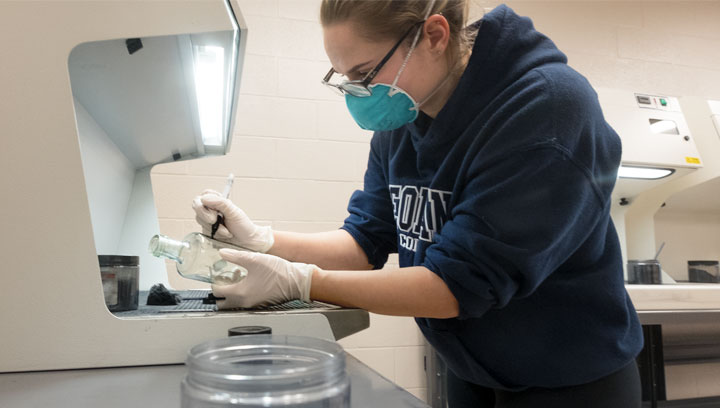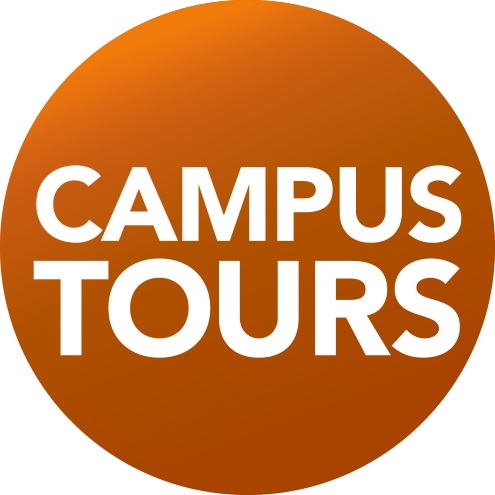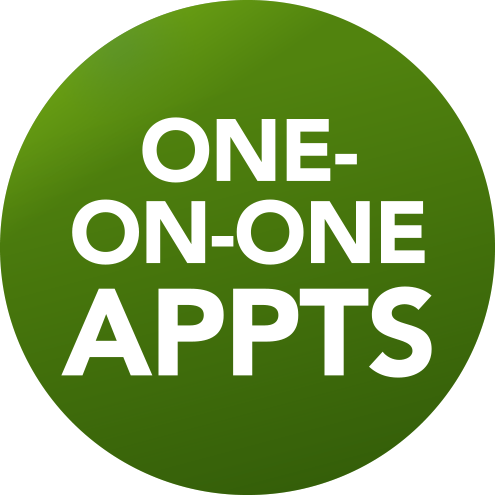
Create positive change in your community with a career in criminal justice
Community and Justice Services Ontario College Diploma program
Knowledge is built upon a foundation of strong experiences. Learn from experts and build the skills to change your community.
Program information
Program description
Students gain the knowledge and skills required to work with at-risk and offender populations in a variety of institutional and community correctional programs that operate within and adjacent to the justice system. Our curriculum combines theory and a variety of applied, experiential and work integrated learning opportunities that allow students to graduate with job readiness skills. Students learn about industry-based subjects such as human rights, equity and inclusion, and advocacy; skills and abilities relating to interpersonal and professional communications; programming and interventions connected to client and case management, and the importance of mental health, wellness and resiliency. The program is delivered by faculty with industry expertise, and complemented by subject matter experts who share their knowledge as part of the course curriculum. Our program has a long-standing history of community partnerships that allow students to participate in community projects and unique experiential learning opportunities. In second year, students complete a 7-week immersive field placement at a community or custody based justice agency that supports graduates as they transition to the profession.
Intake information
| Start date | Campus |
|---|---|
| Fall 2024 | Orillia |
Tuition and fees
- Visit our tuition and fees page for detailed information on the cost to attend Georgian.
- Review additional program-specific fees for this program.
- You can afford this! Explore OSAP as well as awards, scholarships and bursaries to help you pay your way to graduation.
Work-integrated learning
- This program includes a field placement component where you’ll gain hands-on experience in a setting relevant to your program.
- Learn about types of work-integrated learning at Georgian.
What are the admission requirements for the Community and Justice Services program?
Community and Justice Services admission requirements
- Ontario Secondary School Diploma (OSSD) or equivalent or mature student status
- Grade 12 English (C or U)
Mature students, non-secondary school applicants (19 years or older), and home school applicants may also be considered for admission. Eligibility may be met by applicants who have taken equivalent courses, upgrading, completed their GED, and equivalency testing. For complete details refer to: www.georgiancollege.ca/admissions/academic-regulations/
Pathways
Applicants who have taken courses from a recognized and accredited post-secondary institution and/or have relevant life/learning experience may also be considered for admission; refer to the Credit for Prior Learning website for details:
www.georgiancollege.ca/admissions/credit-transfer/
Criminal Reference/Vulnerable Sector Check
Placement agencies require an up-to-date clear criminal reference check and vulnerable sector check prior to going out on placement. Students should obtain their criminal reference three months prior to placement; checks conducted earlier may not be considered current. As some jurisdictions require longer lead-time for processing, please check with the program coordinator to ensure you allow for sufficient turn-around time. It is the student’s responsibility to provide the completed document prior to placement start.
NOTE: A record of criminal offences, for which a pardon has not been granted, may prevent students from completing their placements, thereby affecting their ability to graduate.
Additional information
Students are required to sign a waiver indicating they are physically and medically able to participate in strenuous physical activity.
Students may be asked to have a valid Standard First Aid and CPR Level C or HCP certificate before proceeding to field placement or participating in volunteer opportunities. It is recommended that First Aid and CPR training is completed prior to program entry.
Placement agencies require an up-to-date clear criminal reference check and vulnerable sector check prior to going out on placement.
Proof of completion of the Ontario Ministry of Labour Health and Safety Awareness training must be provided before proceeding on field placement.
Students are required to review agency requirements provided by the field placement office and complete requirements as needed.
What career paths can I take in community justice?
Your Community and Justice Services diploma gives you many career opportunities
As a member of the justice community, program graduates often work as part of an interdisciplinary team in the field, engaging in program planning, assessment, and the implementation of intervention strategies to meet the needs to clients and the community.
Graduates may consider career opportunities in federal and provincial correctional institutions, community residential facilities, open and secure custody facilities for youth, early intervention and rehabilitation programs, school settings, as well as community-based justice and advocacy agencies providing programs and services to offenders, individuals at-risk and victims of crime.
If you’re interested in any of these career paths, this program is right for you:
- Correctional services
- Youth services
- Indigenous justice and outreach
- Court support services
- Community and social services
- Transition homes or shelters
- Addictions and mental health
- Victim support services
- Recreational, leisure and social programming
- Residential care, group homes or detention centres
- Rehabilitation and community re-integration
Is the Community and Justice Services program right for me?
Passionate about justice and helping people?
If you’re fascinated with law and justice and want to help at-risk people and communities, the Community and Justice Services program at Georgian is a great fit for you.
Throughout this program, you’ll learn about industry-based subjects such as:
- human rights, equity and inclusion
- restorative justice, mediation and advocacy
- criminal law, justice and the court system
- group dynamics, interpersonal and professional communication
- community programs and correctional interventions
- case management, treatment and re-integration
- conflict management and crisis response
- mental health, wellness and resiliency
Why study Community and Justice Services at Georgian?
Expert faculty
- Learn from passionate, knowledgeable faculty.
- Courses are taught by professors with a wealth of industry expertise.
- Curriculum is complemented by subject matter experts who share their knowledge.
Valuable field placements
- Build your skills with a seven-week immersive field placement.
- Gain experience with a community- or custody-based justice agency to prepare for your future career.
Graduate career-ready
- Improve your employability and network with employers before you graduate.
- Make connections with community agencies through lectures, guest presentations, facility tours and experiential learning activities.
- Advance your career by obtaining additional certifications and specialized community justice training throughout the program.
Exceptional community partners
- Benefit from our long-standing history of strong community partnerships.
- Participate in community projects and enjoy unique practical learning opportunities.
- Our program is designed with input from local industry and employers regarding industry activities, career opportunities and change, such as:
- federal and provincial corrections
- community re-integration and halfway houses
- probation and parole
- youth justice
- court support services
- community justice and diversion
- victim services
- Indigenous justice and outreach
- community supports
- mental health and addictions
Here’s what our program graduates have to say!
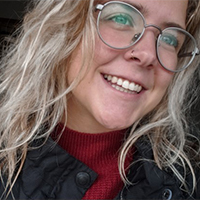
I am very thankful for the connections I made in the Community and Justice Services program at Georgian, as well as the knowledge I was able to gain as it has really helped me get closer to achieving my goals. I found that because of my education at Georgian, I am able to say I am confident with where I am going and the path I chose.
– Bailey Swanton, graduate

The Community and Justice Services program exceeded my expectations. I have been very appreciative of the teachers I had through this program experience and finally feel I am going in the right direction of obtaining a job I want in this field.
– Kim Corbett, graduate
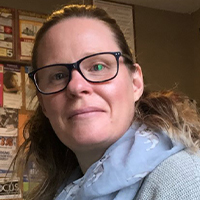
The program has given me a huge background knowledge about the community and justice system in Canada in order for me to enter the work environment with confidence. The teachers and staff at Georgian helped to keep me focused on what was important to succeed and I trusted their experience in finding the right placement.
– Linzi Caldwell, graduate
Learning spaces
Hands-on education at Georgian
Fitness facilities, simulation labs, and interview and counselling spaces give you the chance to engage in hands-on learning and develop skills used on the job.
Our newly renovated Orillia Campus features:
- a full apartment-style lab with functioning furniture and fixtures to practise a variety of client-based interactions
- numerous spaces to facilitate interview training and develop counselling skills
- hybrid learning classrooms equipped with live streaming and video playback of simulations
- a large courtroom-style multi-purpose learning classroom, designed to facilitate mock trials and courtroom proceedings
- state-of-the-art fitness facility to engage in physical fitness training, wellness planning, and simulated career fitness testing requirements
- Wiidookdaading Indigenous Resource Centre to explore Indigenous advocacy and community development
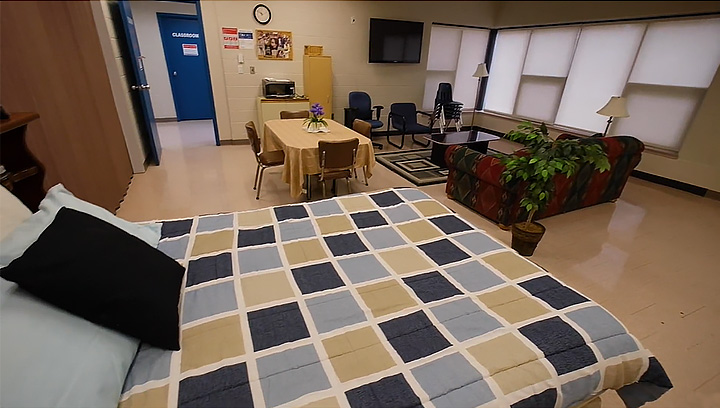
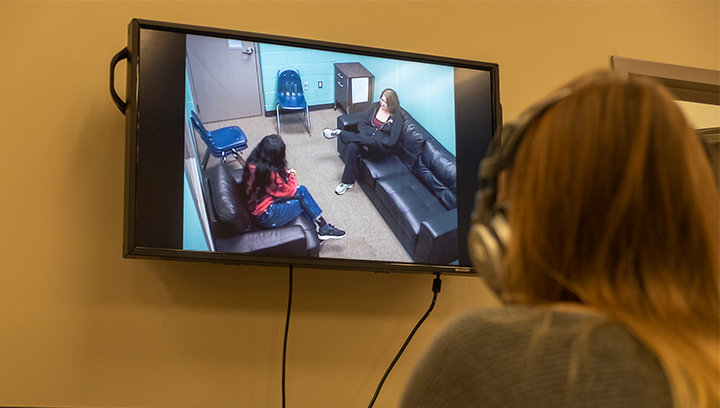
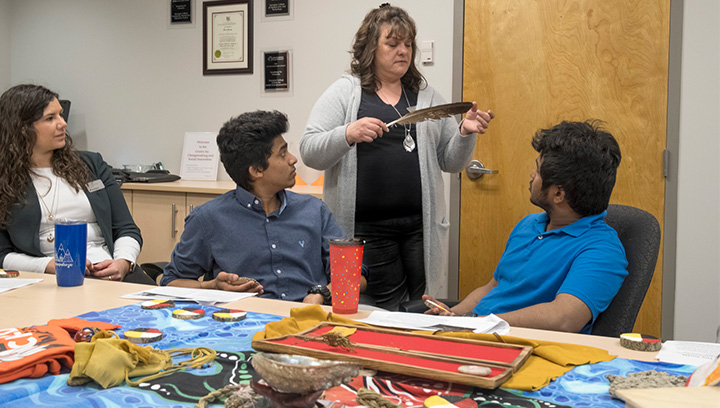
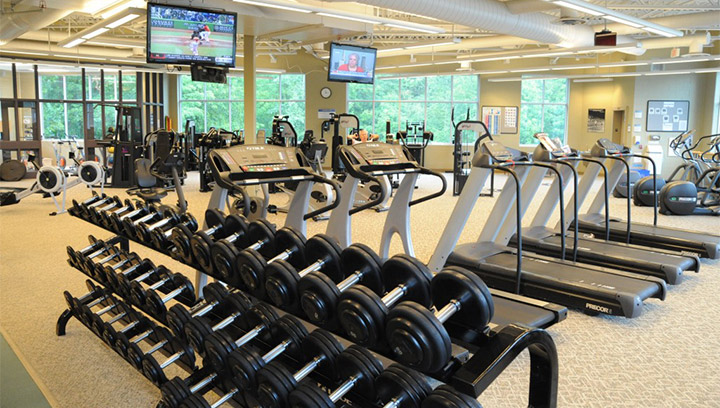
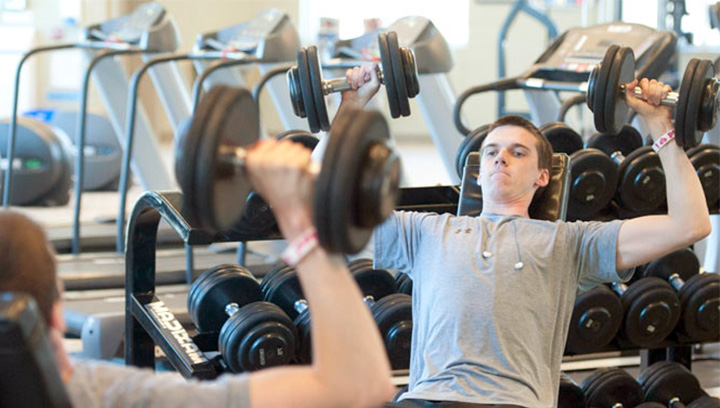
Pathways
As a graduate of Georgian’s Community and Justice Services program, you’ll have many opportunities to further your studies.
Degree studies
Further your studies at the degree level! Graduates may receive up to two years of advanced standing toward our unique four-year Honours Bachelor of Police Studies degree program.
Graduate certificates
Graduating students may choose to pursue a one-year graduate certificate at Georgian, such as Addictions: Treatment and Prevention or Therapeutic Recreation.
Articulation agreements
Georgian also has several articulation agreements with a number of university programs offering many desirable study options for our graduates.
What courses are included in the Community and Justice Services diploma program?
Course overview
17 Program Courses
2 Communications Courses
3 General Education Courses
1 Field Placement
Program-specific courses
Semester 1 courses are listed below. For a full list of courses in the program including course descriptions, view the Community and Justice Services program outline.
- CJSR 1007 – Introduction to Community Justice and Corrections
- CJSR 1008 – Introduction to Law and Correctional Legislation
- FITN 1018 – Wellness and Resilience in Community Justice and Correction 1
- LAWS 1005 – Introduction to Security Skills
- Select 1 course from the communications list during registration.
- Select 1 course from the general education list during registration.
Your course delivery method(s)
Hybrid
This program has a hybrid delivery method. Some parts are online and other parts are delivered in person. You’ll need to come to campus for part of your program.
Please note, delivery methods are based on planning for the upcoming semester and are subject to change.
Check out our other related programs
Do you have questions about Community and Justice Services? Contact us!
Thinking about applying to Georgian?
Contact our student recruitment team to explore your study options.
- 705.722.5152
- recruitment@georgiancollege.ca
Already applied to Georgian?
Connect with the Office of the Registrar for admissions-related questions.
- 705.722.1511
- registrar@georgiancollege.ca
Are you an international student?
Contact our international recruitment team to learn more about studying at Georgian.
- 705.722.5158
- international@georgiancollege.ca
Ways to connect
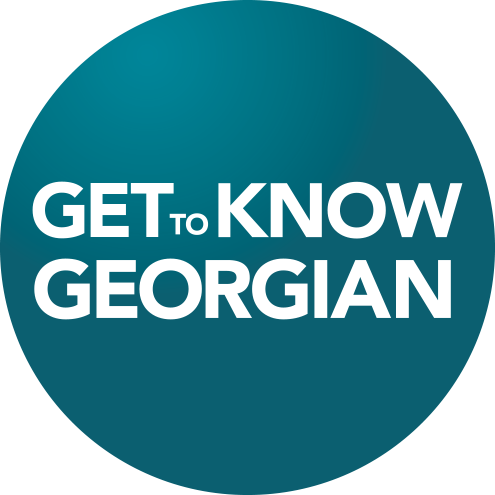
Attend a Get to Know Georgian
virtual info. session on May 14.
Register for an upcoming session.
Take a guided, in-person tour
of our campuses.
Book a campus tour.
Book a phone appointment
with a recruitment specialist.
Connect with a recruiter.
Join our email list for event updates, contest information and more.
Sign up for Georgian updates.





